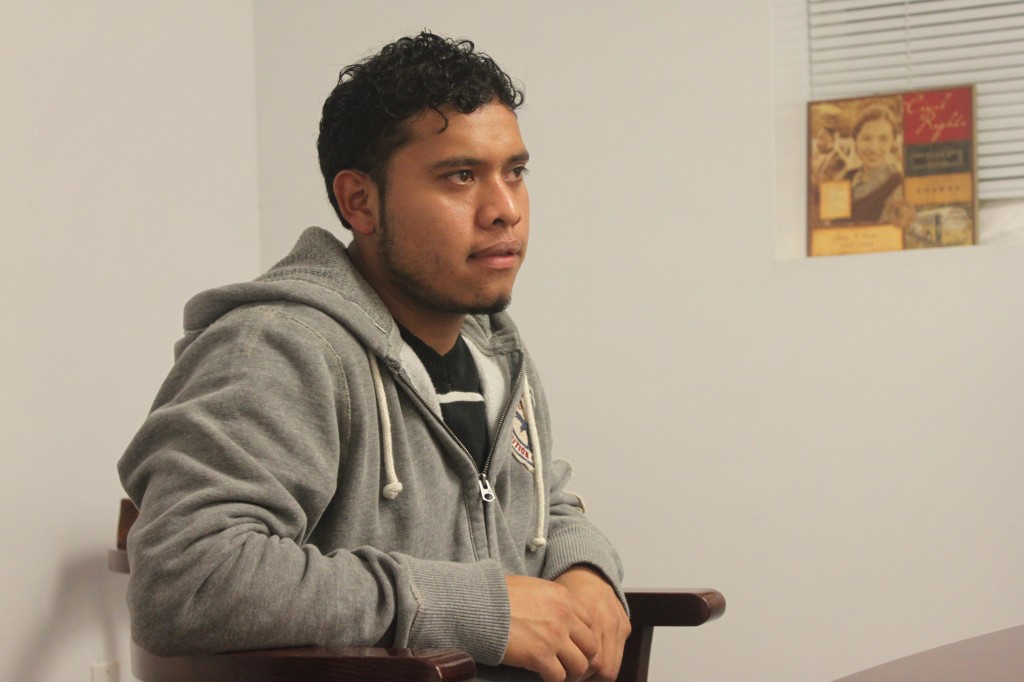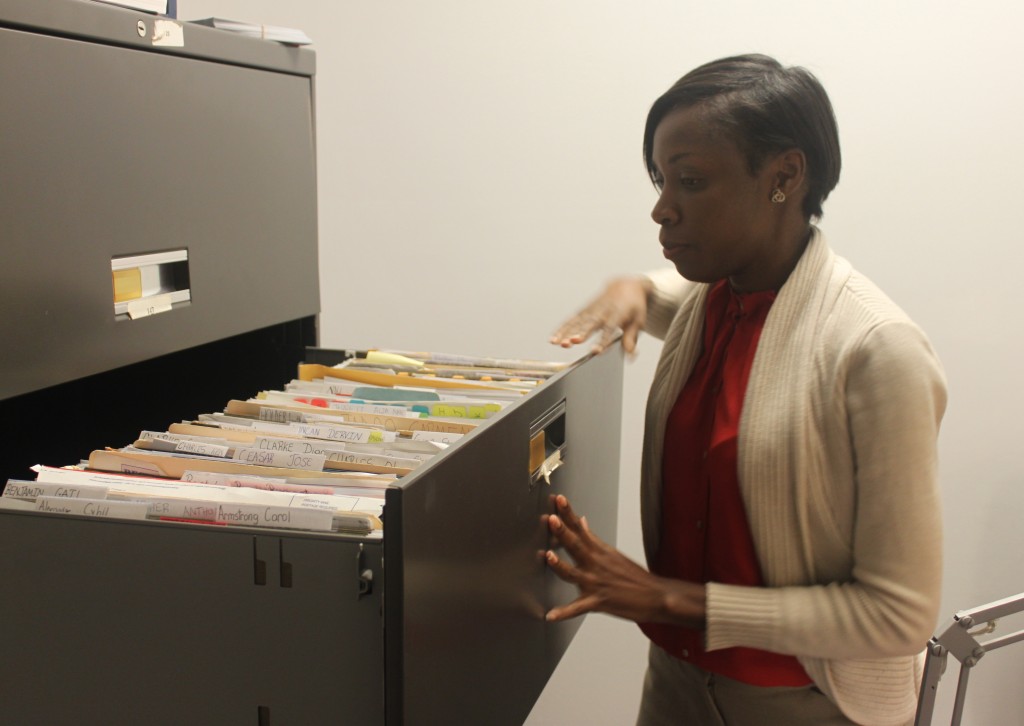
José Emmanuel Machan Paiz, a Guatemalan immigrant and graduate of Bushwick Leaders High School in Brooklyn, sits in attorney Caroline Stephenson’s office. Machan Paiz, who has applied for deferred action from the U.S. Department of Homeland Security, said that he and his friends are following the presidential election. (Philippe Theise)
On January 31st, 2007, 14-year-old José Emmanuel Machan Paiz was playing soccer in Guatemala City. After the game, his parents told him that he would be leaving for the United States the following day.
I couldn’t say no, yes, maybe,” Machan Paiz said. “The next day I was coming here.”
Over the next five-and-a-half years, his journey took him to New York City, through Bushwick Leaders High School, and into the heart of the national immigration debate.
Because Machan Paiz entered the U.S. before turning 16, and has maintained continuous residence, earned a degree, and garnered no criminal history, he satisfies the requirements for Deferred Action for Childhood Arrivals, the federal program that grants approved candidates a renewable two-year period in which to live and work without threat of deportation.
“When I heard about this process, it [made] my whole family and I happy, because we knew it was going to give us opportunities to go to college,” Machan Paiz said.
His family includes his 17-year-old brother, Maicol Leonel, who left Guatemala in September 2009 to join José and their father in Queens. Arrested after crossing the Arizona border, Maicol eventually began working with Brooklyn immigration attorney Caroline Stephenson, who volunteers with Kids in Need of Defense, or KIND, to apply for asylum.
In an affidavit supporting Maicol’s application, Victoria Paiz, José and Maicol’s mother, claims that her sons left their home country to escape recruitment and harassment by members of Mara 18, a criminal gang whose activities pervaded life in her former neighborhood in Guatemala City.
One section describes an evening when Maicol found a friend lying dead on an athletic field, shot, her son thought, for refusing to join the gang. Another section recreates a bus ride during which gang members threatened Paiz’s life as she sat with José.
While his brother’s application proceeds through an overburdened immigration court system, José hopes to gain the deferral that will allow him to focus on his goals of studying computer technology and graphic design at Queensborough Community College, which he hopes to enter in January, and of becoming a DJ. He enjoys hip-hop, house, merengue, and reggaeton, and listens to New York radio stations such as Hot 97.
However, since President Obama established Deferred Action via executive order, its continued existence may depend on who wins today’s election. Speaking to the Denver Post on October 1st, Mitt Romney said that those who had already secured deferred action would retain it under his presidency; one day later, the Boston Globe reported that Romney’s campaign stated that he would bar additional deferrals if elected.
As of today, José’s application for deferred action is still pending. The possibility of a Romney victory concerns him and his friends, who are also immigrants.
“If the president don’t stay in [office], it’s going to be hard for us to go to college and make our goals,” he said.

Attorney Caroline Stephenson in her office in Crown Heights. Stephenson said that her clients, most of whom are West Indian, worry about access to health care, education, and transportation should Mitt Romney be elected president. (Philippe Theise)
Stephenson reports that her other clients, the majority of whom are West Indian, share José’s concern about a potential Romney presidency.
“People are scared. Very scared,” she said. “[They’re asking] ‘Will I be able to access certain basic things?’” such as health care and education.
Stephenson also said that Romney’s idea of “self-deportation” is vague and unrealistic.
“No one fully understands what that is about. I don’t understand what it means myself,” she said.
“No one volunteers to return home.”
While José waits for the results of the election and his application, he has a message for those who would deny young undocumented immigrants a chance to live in the U.S.
“They need to give us an opportunity to show them how we are, we can make this place better. To give us just one opportunity in this life.”